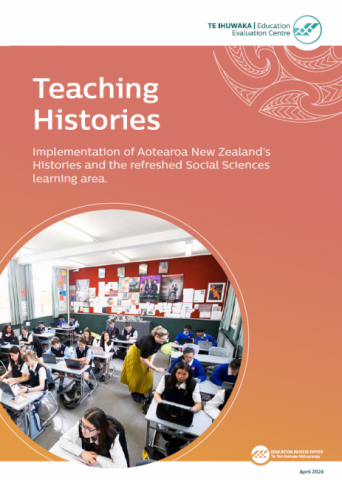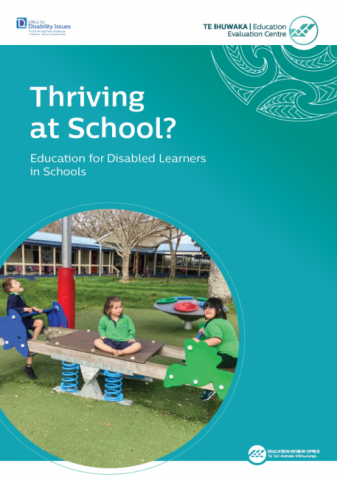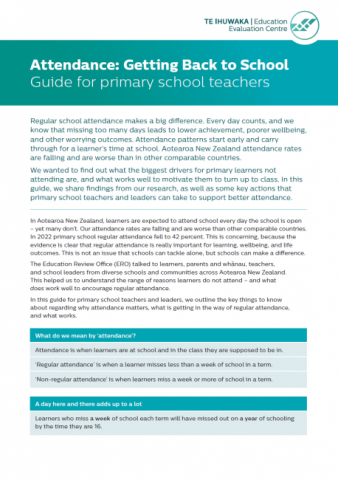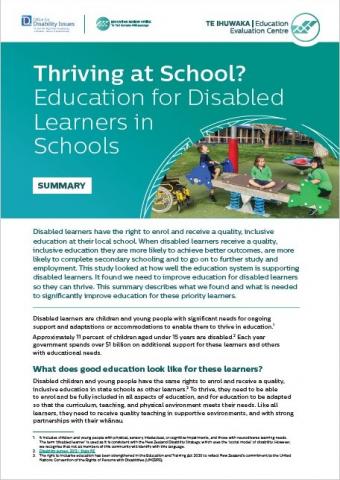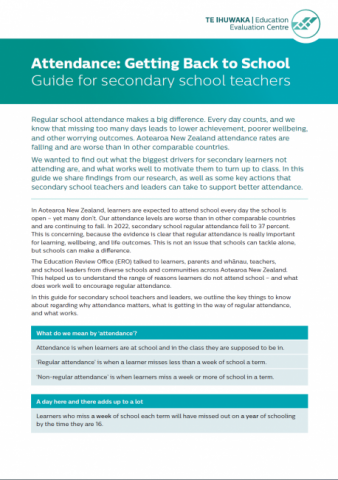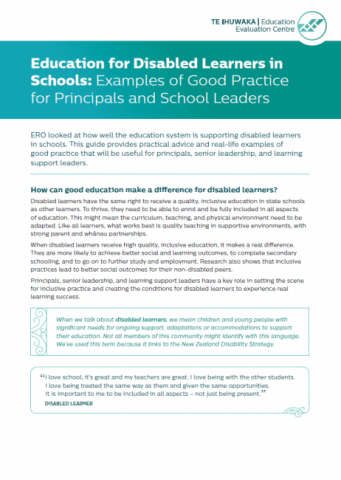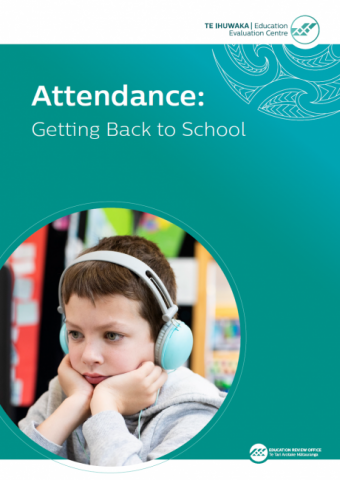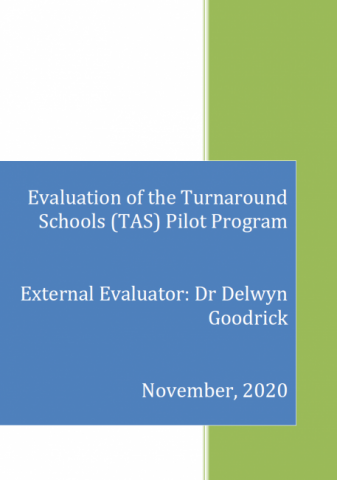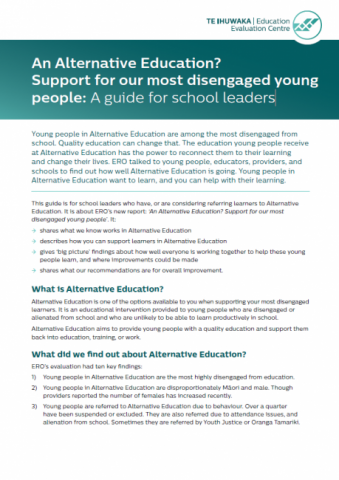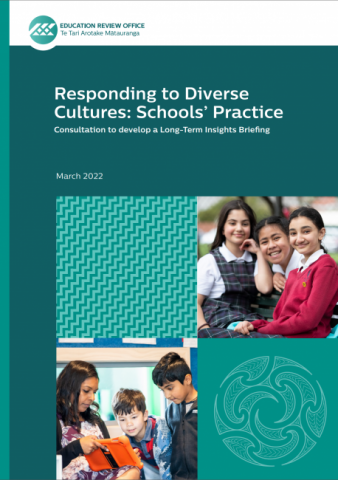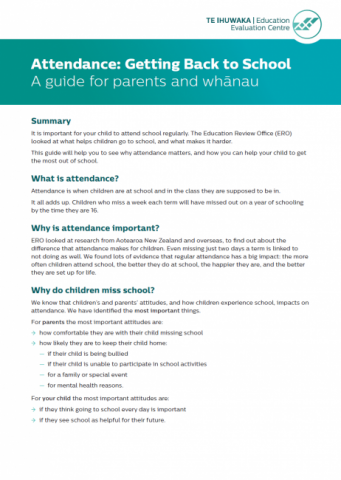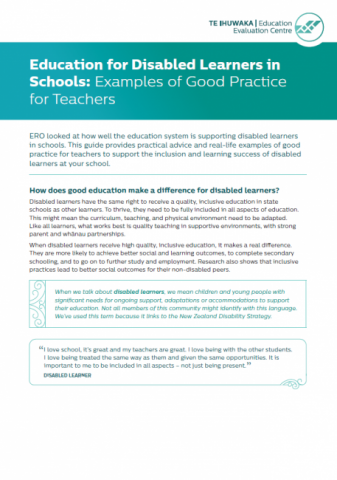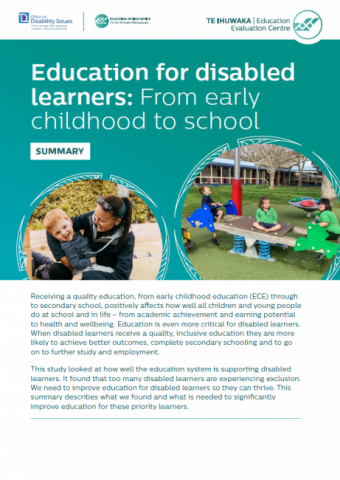Teaching Histories - Implementation of Aotearoa New Zealand’s Histories and the refreshed Social Sciences learning area
Published: 04 Apr 2024
In 2023, teaching Aotearoa New Zealand’s Histories (ANZ Histories) became compulsory for students in Years 1-10. ANZ Histories is part of the refreshed Social Sciences learning area. The Education Review Office, in partnership with the Ministry of Education, wanted to know how the implementation of ANZ Histories and the wider Social Sciences is going. This report describes what we found about the changes and the impacts for students, teachers, and parents and whānau. It also describes the lessons that can help inform the ongoing implementation of the Refreshed Curriculum.
- Audience:
- Academics
- Education
- Parents
- Schools
- Content type:
- Research
